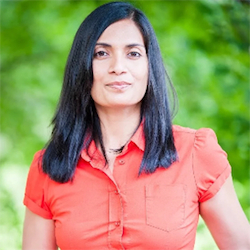You become part of the system you study, says Mark de Rond. Objectivity isn’t the goal; act as a human first, researcher second.
Garima Sharma (University of New Mexico) spoke with ethnographer Mark de Rond (University of Cambridge) about researchers’ impact on those they study.
Garima Sharma writes:
Objectivity is revered in organizational studies. Researchers are told to be bystanders, flies on the wall. When they participate in a research context, they should move gingerly, trying not to disturb the phenomenon they study.
But some researchers say that this quest for objectivity is not only difficult but often impossible. Ethnographers, with their close involvement in studied communities, see the challenges of objectivity particularly acutely.
Imagine if you are an ethnographer who is studying prisoners, and a prison guard is attacked. “What should you do?” asked Mark de Rond, professor of Organisational Ethnography at the University of Cambridge’s Judge Business School. Continue to observe, or intervene to help?
De Rond does not ask this question lightly. He has written several papers and books on the tension he experiences as he embeds himself in extreme settings in order to study collaboration and problem-solving. He has embedded with army surgeons in Afghanistan, peace activists on a march from Berlin to Aleppo, and elite rowers at Cambridge University. Currently, he “hangs out” with pedophile hunters in an attempt to understand their world, hoping this might also help the police develop more effective ways of engaging with them.
De Rond paused after asking the question about the prison setting. “If you do help [the guards], you become implicated and the prisoners watching this may well change how they view you,” he said. You may compromise your data collection, but you must be “a human being first and a researcher second,” says de Rond. The question rings close to home, as one of his PhD students, Adrian Marrison, is involved in a 12-month, full-time ethnography of prison officers in one of the UK’s high security prisons.
To account for his impact in his studies, de Rond tends to write himself into the narrative. His goal is to allow the reader to make her own assessment about how his participation changes the system he studies and how problematic that is, if at all.
Researchers have moral responsibility
This tension between being human and observing a phenomenon is one that that ethnographers grapple with regularly. I first heard Mark speak about this issue at the EGOS conference in 2018. He showed an infamous photo of a vulture waiting to pounce on a starving Sudanese child. The photo brought photographer Kevin Carter the Pulitzer Prize but raised many questions about the responsibilities of photojournalists. Carter did not help the starving child to a nearby food station or try to protect the child from the vulture. At the conference, Mark showed the photo to a hall full of researchers from around the world. He asked us to reflect on our place as researchers, as ethnographers.
Tensions around intervention and objective distance aren’t always this extreme, but they are common in most ethnographic studies. Mark’s acknowledgement of this tension came as a breath of fresh air for me, as a junior scholar who cares about the moral obligations of researchers. In this podcast, you will not find answers to address this tension: just the inspiration to stay with it, to accept it, to do what you would do as a human first and researcher second.
Can researchers give back?
As I listened to Mark describe how he responds to requests from those he researches — for example, conducting training sessions with the doctors and nurses in Afghanistan — I wanted to go further. What if researchers not only accept that we change the system we study, but actively try to give back? What would that look like?
Alice Goffman conducted a multi-year ethnography on black youths in Philadelphia. In the resulting book, she wrote: “Perhaps these perspectives will come to matter in the debate about criminal justice policy.” Reading the book, I was struck by the word “perhaps” (although Goffman has directly supported the people she studies). Can we do more than wish for impact?
Mark is sympathetic to my discomfort. He offers many examples but identifies no one strategy that we can all adopt. He encourages researchers to follow their research subject’s lead, to remain responsive to those they study, and look for ways to give back to them. As well, in Mark’s characteristic pensive style, he reminds us that giving back is not a simple equation. Say you give money to a poor woman in war-torn Afghanistan. Having cash on her can expose her to risks.
The takeaway? Be mindful of your research subject’s context, put their needs first, and follow their lead.
Mark offers many nuggets in this podcast not just for ethnographers but for all researchers who notice their impact on systems they study. Hear the podcast to learn more.
Resources Mentioned in the Podcast
de Rond, M. 2017. Doctors at war: An ethnographer’s account of life and death in a field hospital. Ithaca, NY: Cornell University Press
Claus, L., de Rond, M., Howard-Grenville, J. & Lodge, J. 2019. When fieldwork hurts: On the lived experience of conducting research in unsettling contexts. In Zilber, T.B., Amis, J.M., Mair, J. (eds.) The production of managerial knowledge and organizational theory: new approaches to writing, producing and consuming theory. (Research in the Sociology of Organizations Series, vol. 59). Bingley: Emerald Group Publishing, pp.157-172.
NBS’s Co-Creation Initiative
NBS seeks to help researchers navigate the path of co-creation with practitioners: integrating academic and practitioner knowledge for unique insights. Review our many existing resources and subscribe to our academic newsletter for new co-creation guidance.
We also hope you’ll contribute your own insights. Please share your interest by emailing Garima Sharma.



Add a Comment
This site uses User Verification plugin to reduce spam. See how your comment data is processed.This site uses User Verification plugin to reduce spam. See how your comment data is processed.